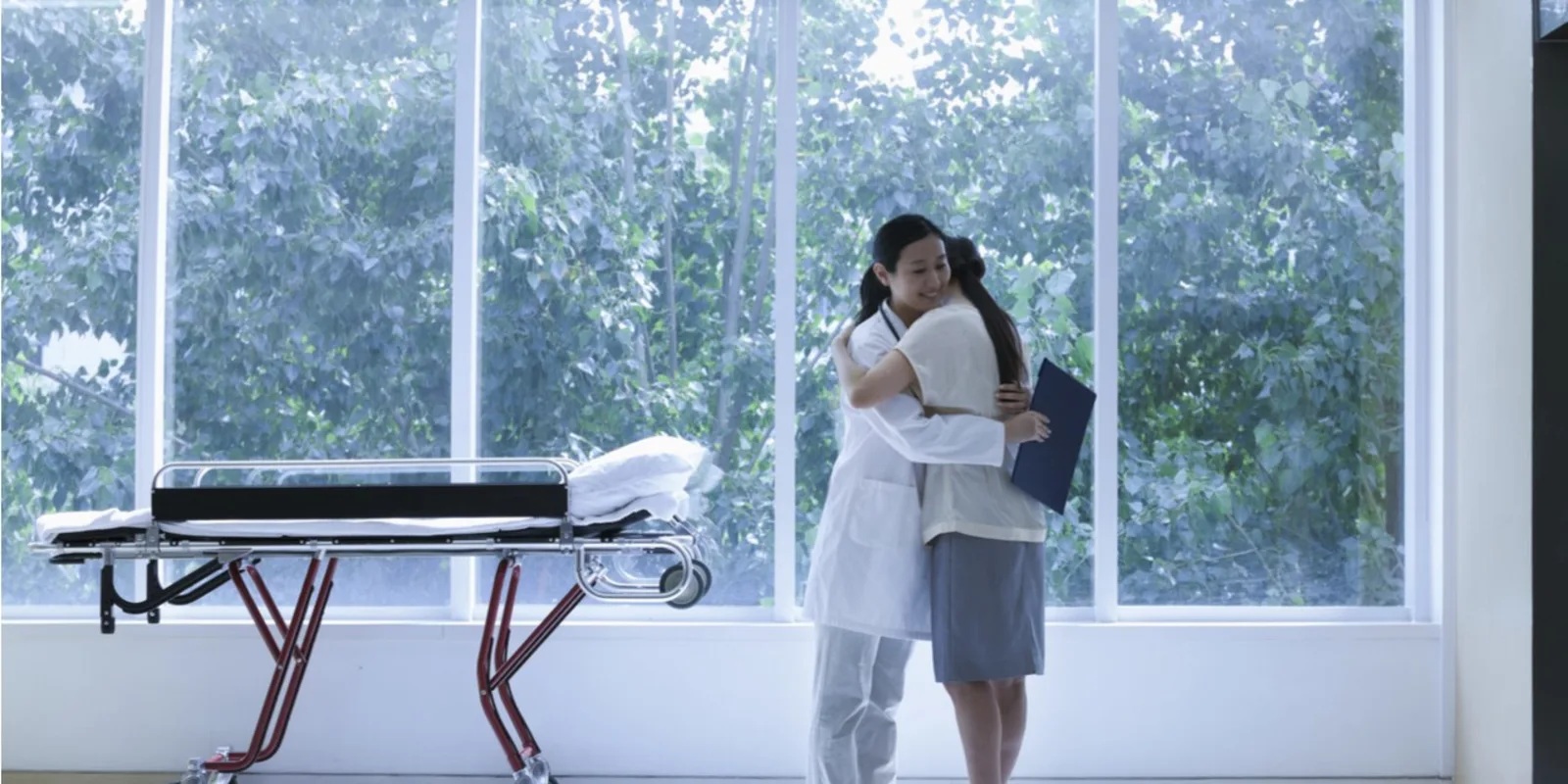
Humans Need Human Touch
Patients sometimes need a shoulder to cry on. When I say that, I normally mean it on a completely figurative level.
However, at times, this needs to be interpreted differently. There are instances in a medical encounter where an actual shoulder could be of service — a physical crutch that takes off an emotional load — and that’s when the popular adage can be beneficially carried out in its literal sense.
Medicine as Art
Enter the art of medical caregiving, stage left. I refer to it as art because it IS. Rather than a method set in stone, it is malleable, changing with interpretation and need. Much like other abilities, which get better with time, caregiving, too, can be improved on through practice.
Some may argue that, much like Dali with art, or Einstein with math, people can possess an innate ability to excel in it. Similarly, some doctors are inherently more gifted in their ability to ‘feel’ their way into patients’ hearts. I don’t mean that term in the inappropriate sense, but rather refer to those who possess a natural proclivity for achieving the perfect emotion-to-touch ratio when pursuing therapeutic breakthrough.
I grew up watching others around me use this instinctive ability — a form of ‘schmooze’ — to foster relationships, get better grades, and even optimally place into coveted positions. I wasn’t born with the gene for it. Nor was I handed the tools needed to explore this skillset as I got older. This turned me resentful, at times, when doing ‘the right thing’ didn’t land me where I wanted to be, like those who were gifted with this talent.
But that changed. Or, maybe I simply grew up and learned to take responsibility for my own fate in life.
Either way, when it comes to caregiving, years of one-on-one patient interactions gave me the experience I needed to improve my own communication abilities. My newly honed skills served as proof that Malcolm Gladwell’s ‘10,000 Hour Rule’ truly could materialize when applied.
Touch: Good Versus Bad
If you think of the concept of ‘touch’ in medicine as having a negative connotation, or if that concept makes you uncomfortable in any way, it’s time to consider the reason.

Why do we, as a society, think of touch in such negative light when there’s so much good to it? Why is it negative at all, in fact, when its definition reads “to affect someone emotionally,” and often ends in significant impact?
Has touch always been wrong in medicine, or has the latest rise in touch-awareness shaken our confidence? Should we completely prohibit engagement, in any form of touch, even if it comes from a genuinely good place and is delivered tactfully with good judgement? Should we restrict this powerful means of making a difference simply because we fear misinterpretation?
The idea of experiencing anxiety about the method in which we deliver quality care is familiar to me, as a physician, because of the litigious perspective doctors must be wary of on a regular basis. It reminds me of the common practice of defensive medicine, where one holds back or adds otherwise irrelevant, even lengthy steps to the delivery of medical care simply because of the fear of legal backlash. It is one of the biggest issues dragging down healthcare today. (I cover this ad nauseam in an upcoming article, aptly called, “Playing Hide and Seek-Damages With Our Degree: The Need for Tort Reform in Healthcare.” Stay tuned.)
Infusing Human Touch into Medical Practice
“A good technique for showing compassion, I told the students, is simple: 3 T’s. Talk or listen, take time and touch. Merely taking the time to talk and listen to patients is comforting, as is a doctor’s touch.”
His method, however, is not necessarily what we’re taught in training. Established medical guidelines often preach that you keep these very emotions out of the patient-physician interaction. You’re told this early on, in medical school, where students are, by nature, in hypnotic states of sleeplessness. It becomes almost like a mantra — a yogic chant of so-called truth — to resist the temptation of letting yourself into the patient’s world and becoming too emotionally invested.
The concept is then further solidified in residency training, where there may not even be time in the day for emotion of any sort to materialize. Sure, you’re moving through the motions, but you’re also doing it all on little sleep, with poor health and hygiene, and, frankly, somewhat in a daze. Someone should really do something about that.
Using Our Hindsight to Better Our Foresight
It seems hypocritical, in hindsight, to stress emotional detachment while emphasizing the importance of bond formation with these very same patients. I may not have been comfortable saying this as a student, but I say it proudly as an attending now.
“Outside the field of medicine, empathy is a mode of understanding that specifically involves emotional resonance. In contrast, leading physician educators define empathy as a form of detached cognition. This article argues that physicians’ emotional attunement greatly serves the cognitive goal of understanding patients’ emotions. This has important implications for teaching empathy.”
We need more empathy in the field of medicine. And more touch. Schools need to teach it in class, and residency programs need to teach it on the wards and in clinics, instead of emphasizing that students detach.
Empathetic Human Touch
I challenge the concept of ‘emotional detachment’, as I grow into an experienced physician, much in the same way that I challenge the ‘touch detachment’ we’re increasingly told to practice in this day and age.
In the context of medicine, and in healing especially, emotions and touch are not always mutually exclusive. We can combine the two concepts, in fact, and deliver them in the form of empathetic human touch. They fit together so well, like a hand in (latex) glove.
What you get is a valuable tool with potential for explosive results. When I discovered that power — the magic created with this powerful tool, I made a decision to use it. The next time someone needs a ‘shoulder’, I’ll let them cry on mine.
Hippocrates would be proud.






